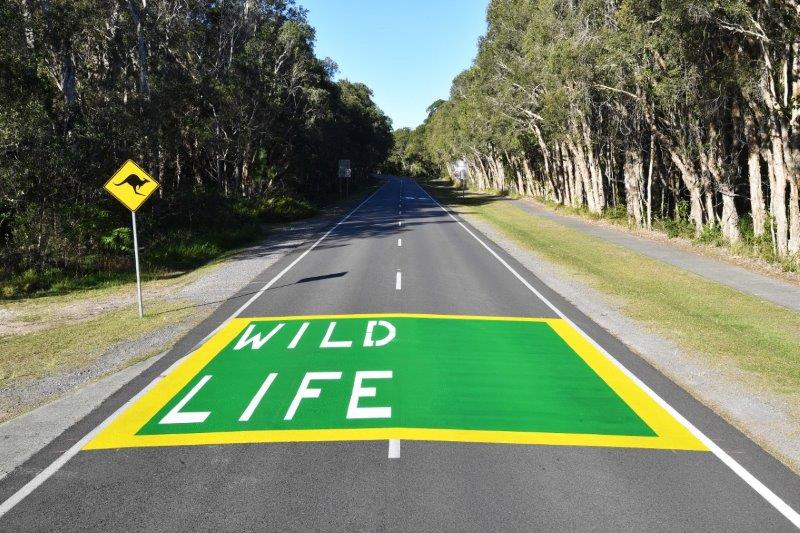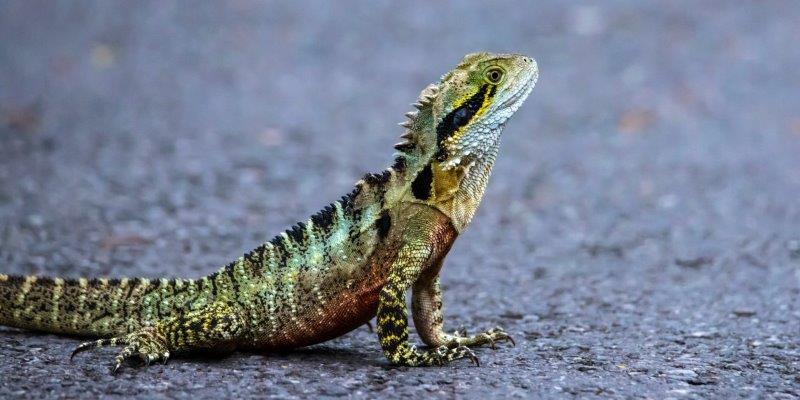
WATER dragons have been around for about 20 million years but need our help if they are going to survive into the future.
An ancient line of lizards, they love lakeside living, just like people, but face threats, particularly when they venture onto roads.
That’s why Sunshine Coast Council, which is committed to creating the most sustainable region in the nation, has acted to provide greater awareness and protection.
To prompt motorists to be more alert, ‘WILD LIFE’ pavement markings have been stencilled across roadways on Nojoor Road and Ocean Drive at Twin Waters – a known location for natural treasures like water dragons.
The Sunshine Coast’s status as a UNESCO biosphere demonstrates globally that we are a community wanting to live in harmony with our environment, a community that supports responsible development and prioritises preserving our natural environment.

Division 8 Councillor Jason O’Pray said motorists needed to be mindful of our wildlife, and the new road signage would send a powerful message.
“The pavement markings will work in conjunction with existing wildlife signage, reinforcing the importance of responsible driving and heightened driver awareness through these areas.
“Wildlife is an important part of our ecosystem, and we are so lucky to share the best part of the planet with kangaroos, ringtail possums, water dragons and so many more species.
“Protecting our precious wildlife population through strategic implementation and maintenance of wildlife treatments like this is necessary as our population continues to change and grow.
“Our region is proud of its biosphere designation, and we will continue to celebrate the supportive co-existence of people and nature.
“If you ever find injured wildlife, call 1300-ANIMAL (1300 264 624).”
Environment and Liveability Portfolio Councillor Maria Suarez said Council supported several wildlife rescue/care groups and facilities through the Environment Levy.
“The Environment Levy has enabled many projects to be undertaken in partnership with dedicated volunteers, landholders, community groups and research organisations who share council’s interest in creating a legacy that will benefit our community for decades to come,” Cr Suarez said.
These groups can also be contacted directly for assistance with sick, injured or orphaned wildlife - Australia Zoo Wildlife Hospital, Bat Rescue, Twinnies Pelican and Seabird Rescue, Wildcare Australia – SEQ and Wildlife Volunteers Association (WILVOS).
For information about the many Sunshine Coast native animals, visit https://www.sunshinecoast.qld.gov.au/environment/native-animals
